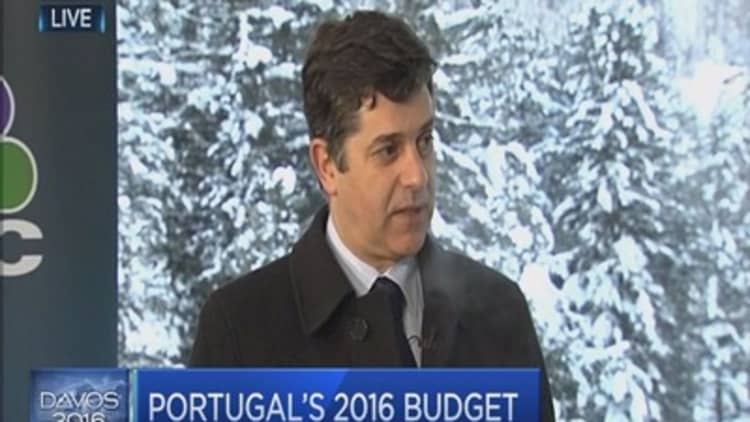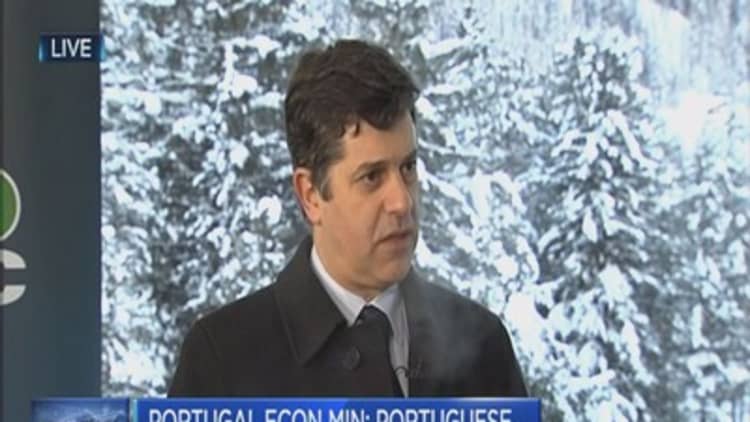Portugal's presidential election on the weekend will not bring any shock results, the country's economy minister told CNBC on Friday.
The vote on Sunday comes at a time of increased political risk in Portugal, after its center-right, pro-austerity government collapsed in November and was replaced by a left-leaning coalition.
"I don't think that the presidential election is going to bring any surprise or any problem to the government," Manuel Caldeira Cabral told CNBC from the World Economic Forum in Davos, Switzerland.
The center-right coalition, Portugal Ahead, was re-elected in October. However, the following month, a bloc led by the Socialist Party forced a vote of no confidence that brought it down.
This ushered in a new government under Socialist Party leader and former mayor of Lisbon, Antonio Costa.
Concerns linger that the new coalition will not last the four years until the next general election. In the short-term, attention is on Sunday's presidential election and whether the victor will be support the existing coalition.
"I think the frontrunners are moderate candidates and all of them committed to maintain the government and to maintain the legislature. The centre-right wing candidate is quite moderate and it was quite sure that he is going to maintain the government and the legislature," Caldeira told CNBC.

He added that the government was committed in 2016 to combating Portugal's public deficit, which likely exceeds 3 percent of gross domestic product (GDP) last year.
"Our budget deficit is going to be more reduced, and we are going to be in 2.6 percent of GDP, so well below the level of European commitments. So that is good news," Caldeira said.
How Portugal — formerly a poster child for austerity— will look at the end of Costa's term is yet unknown.
The new government has pledged to ease tax burdens, raise the minimum wage, restore government employee salaries, reverse cuts to public services and lift the freeze on pensions.

The Portuguese economy grew by 1.7 percent last year and prior to the collapse of the government, the European Commission (the European Union's executive wing) forecast it would expand by the same amount in 2016. It is yet to publish updated predictions.
It saw unemployment averaging 11.7 percent in 2016, which would be above the likes of Germany or Luxembourg but considerably lower than the forecast 20.5 percent in neighboring Spain.
Following the global financial crisis, Portugal was bailed out by European authorities and the International Monetary Fund. It received a joint financing package worth 78 billion euros ($84 billion) between 2011 and June2014.
Portugal will remain under post-program surveillance until at least 75 percent of the aid has been repaid.
Portugal's public debt remains high and is seen holding above 120 percent of gross domestic product by the European Commission until at least 2017.





